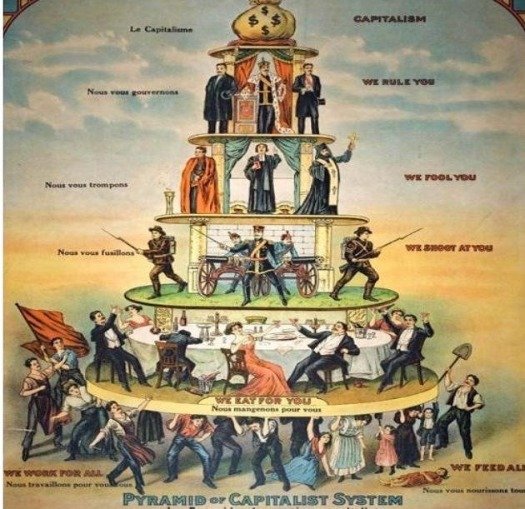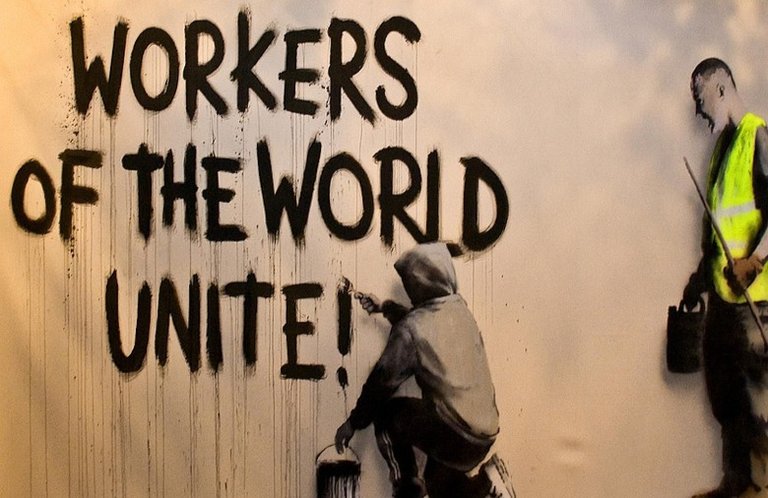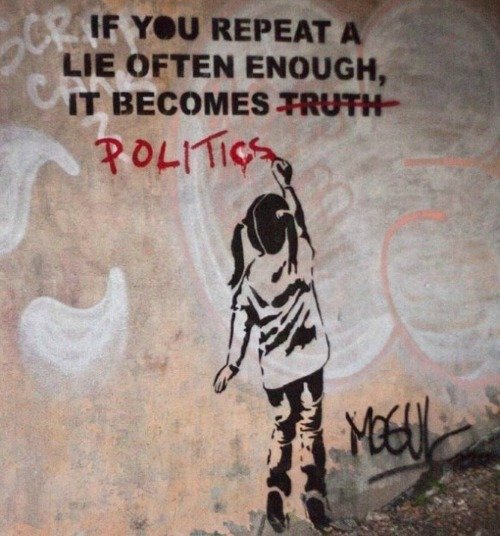This article seeks to answer the challenging question of whether or not transformative social change is possible or if our efforts to provide human services actually maintain the current status quo and strengthen social inequality.
The article is a digest of the main ideas posed by Kivel (2016) in an article titled Social Service or Social Change?
What is Social Service Work?

Source
Social service work is any work that addresses the needs of individuals and groups who struggle to overcome the damaging impact of systemic infrastructures of oppression, exploitation and violence. The work seeks to identify and challenge the root causes of oppression, to advocate for individuals and to produce real change.
The needs and numbers of individuals who are currently suffering from systemic injustices within our current society are endless. However, the resources and support systems in place for these individuals are scarce, poorly funded and often undermined by individuals and groups who hold power, wealth and privilege within our society.
The Non-Profit Industrial Complex
.jpg)
Source
The Non-profit industrial complex (NPIC) is a product of the current neoliberal political economy and refers to a collection of symbiotic relationships that exist in society between facets of the government, corporations and the owning classes and the foundations, charities, non-profits and social service organizations that they fund and/or run.
By working together, these sometimes paradoxical organizations are able to create a system of control and surveillance as well as the daily management of social justice campaigns and political movements. Together these organizations promote and maintain the current capitalistic atmosphere by keeping public order and manage dissent among the population while simultaneously siphoning money and funds away from the public sector and into private hands. They allow corporations to hide their colonial exploits through philanthropic work and they suppress activist movements of massive organized groups that would be able to enact transformative social change and redirect them into career based organizations that provide social services meant for a select few individuals.
On the positive side, the NPIC provides opportunities for employment and professional development. They allow individuals who work within social services to feel good about what they do and they provides an appearance of concern and caring for the ruling class who fund the work.
However, because of the constant threat of loss of funding, especially in cases where the current system is being challenged, many social service agencies intentionally or unknowingly work to maintain the current status quo.
The Pyramid of Socio-Economic Status
.jpg)
Kivel (2016) points out that a pyramid type structure exists among groups of individuals within our current political/economic system. The top of the pyramid which consists of rich owners and the ruling class elite, is made up of about 1% of the population. These individuals control around 47% of the country’s financial wealth and tend to have a net worth of $3 million dollars or more and an average income of over $374 thousand per year.
Below the ruling class are the professionals and managerial type individuals who have a net worth of around $344 thousand and an annual income of over $94 thousand per year. This group consist of 19% of the population and they control around 44% of the nation’s wealth.
The bottom of the pyramid is made up of 80% of the population. This group is made up of working class individuals, the unemployed, and those individuals who are homeless or on welfare services. This groups tends to have an average net worth of around $56 thousand and earns and average income of approximately $41 thousand per year.
Infrastructure and Systems of Control
.jpg)
The 1% of individuals at the top of the pyramid hold positions of power. They are corporate executives, policy makers, politicians, and political campaign funders. These individuals decide where public funds will be allocated and they make decisions that affect the lives of the general population by ultimately deciding the legislature and what organizations and services will receive public money. They decide what and where institutions will be built and many of the issues surrounding institutions like schools, hospitals, prisons, and other civil rights issues.
The next level of the pyramid (professional/managerial) ultimately work for the ruling class. These individuals use their expertise to manage the people on the bottom of the pyramid and to push the ruling class objective. Their role is to manage the system that the ruling class puts in place.
The majority (80%) of the population who hold a position at the bottom of the pyramid, actually play the largest role in maintaining the system. They ultimately produce the economic labor by holding positions in every facet of society. These individuals work in schools, factories, hospitals, restaurants among others and ultimately allow our economy to function by keeping it productive.
Misplaced Blame
.jpg)
Communities at the bottom of the pyramid are often trapped in cycles of insecurity, competition and violence due to a scarcity of resources. However, individuals at the top of the pyramid remain immune and isolated from these negativities because of their wealth and power.
Some individuals at the bottom of the pyramid do slightly better than others and they acquire additional benefits and securities over people living in direct poverty. These individuals are able to capture a slightly larger share of the scare resources available and because of that, they actually have something to lose. Often these particular individuals are blinded to the system in place and cannot see its true nature. Fueled by propaganda from the ruling class, they tend to blame and attack the ones below them rather than questioning the systemic structures in place within society that lead to oppression and inequality and ultimately concentrate the financial wealth of the nation up the pyramid. This is an example of misplaced blame.
Throughout history there have been cycles in which conditions at the bottom of the pyramid become too severe, inequality goes too far and individuals at the bottom of the pyramid organize and rise up in an attempt to gain power and more access to resources.
The role of the non-profit industrial complex (NPIC) in society today is to keep the attention of the lower classes away from those in power, and to ultimately manage and control their means of navigating the system. These organizations are designed not to enact social change but rather to help individuals survive within the lower levels of the pyramid.
That concludes part one of this multi part article. The next part will discuss how the NPIC creates buffer zones between classes within the economic pyramid.
Thanks for Reading

Reference
Kivel, P. (2016). Social service or social change? The Scholar & Feminist Online, 13(2), 1-11, Retrieved from http://sfonline.barnard.edu/navigating-neoliberalism-in-the-academy-nonprofits-and-beyond/paul-kivel-social-service-or-social-change/0/
Nice article but I cannot say that I agree with you.
You do see the problem but it seems that you came to wrong conclusion. As you have written, the "systemic infrastructures of oppression" is a problem. But the solution is not changing the elites or even killing the elites and then deciding that "mob rule" (or proletarian democracy as some may call it) is the one option that will lead us to glory and happiness. This is naive, and speaking quite honest have been shown to lead into even greater oppression as the new elites emerges from the mob and tries to assure their position at the top. No, this lead only to gulags, Holodomor and poverty and even death.
The only solution is to completely separate the government from the economy. You have written that the big corporations lobby the government for laws that are tailor-made for them, thus achieving monopoly or sharing the market between a couple of big companies as the laws do not allow small businesses to enter the market.
But the companies may do this only because the state is allowed to regulate the economy. If you take away this right the whole system will collapse.
Why do you think governments do not like the idea of crypto? Because it is new and may feed to bankruptcy of their citizens? That has not concerned them before. What is different with crypto that it does undermine the role of the biggest friend of big government, the Central Bank. And without the CB governments will loose at lot of the power to control the economy, and that is why crypto is of such importance.
I think the points that you made are valid.
You raise a lot of good points and I agree with a lot of what you are saying.
I'm interested in how you came to the conclusion that I was suggesting that we change/kill the elites and allow mod rule? I don't think that I said that or even suggested that. The article was meant to first, describe the current system in place and second, to describe the role of non-profit social service organizations within the current political economic climate. I'm asking if true social service work promotes change within society of if they are actually meant to keep the current system in place.
The article discusses the current structure and how social service work relates to it. I'm not suggesting an uprising of the lower class but suggesting that the role of social work is to maintain the system rather than creating transformative change.
I must not have been clear in my explanation so I will keep that in mind. Thanks for the comment. i hope to hear more of your thoughts on the subject.
To the question in your title, my Magic 8-Ball says:
Hi! I'm a bot, and this answer was posted automatically. Check this post out for more information.